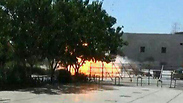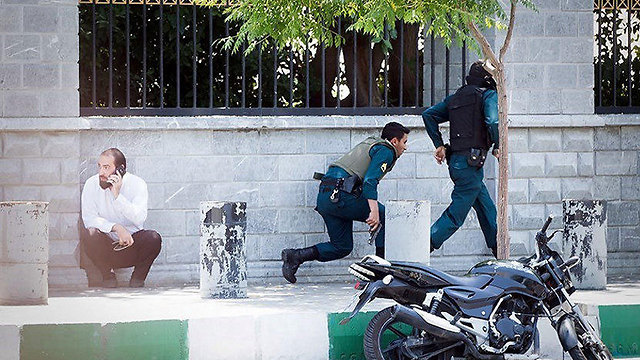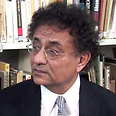

Terror in Iran: The paradox of jihad
Op-ed: The common assumption is that terror targets heretics in a bid to impose Sharia laws. This assumption is wrong, because the more Muslim and religious a certain place is, the more burkas and mosques it has—the more it is hit by terror and destruction, produced by jihad.
The jihad terror creates paradoxes. After all, the common assumption is that terror targets heretics, in a bid to impose Sharia laws as part of the global caliphate. This assumption is wrong. Because the more Muslim a certain place is, the more religious it is, the more burkas and mosques it has and the more obedience to religious laws—the more it is hit by terror and destruction, produced by jihad.
Sunni terror mostly strikes northern Nigeria, in areas dominated by Sharia laws. It also strikes in Afghanistan and Pakistan, where the victims are usually Muslims who identify more with the jihadists who are massacring them than with the opponents of jihad. And terror strikes Turkey as well, although it is becoming more and more Islamic.

Now, terror has also reached the ayatollah regime’s government centers. This time, it appears to make sense: Sunnis versus Shiites. After all, they are engaged in a bloody war in Syria and Iraq. There is a paradox, however, in this case too. Because Iran, the same Iran, is an ally of bodies like the IHH, the Turkish organization which led the Mavi Marmara ship to Gaza, and of Hamas of course. These two bodies are linked both to Iran and to the Islamic State and/or al-Qaeda and/or satellite organizations of these bodies. Hamas is connected to Ansar al-Maqdis, the terror organization which is active in northern Sinai, which has also pledged allegiance to Abu Bakr al-Baghdadi, the ISIS leader. The IHH is also connected to the jihad bodies. So Iran is helping those who help a branch of the organization that attacked Tehran on Wednesday.
Where’s the logic? It’s slightly difficult to find it when it comes to these bodies. It’s a quagmire, and whoever enters it is asking for trouble. We didn’t have to wait for terror to reach Tehran to know that the absolute majority of the victims of terror are Muslims.
Nevertheless, there is an innovation in what happened on Wednesday, because ISIS scored a prestigious achievement. It managed to enter the sanctuary of the Shiite capital and execute a combined and sophisticated terror attack. The fact that Iran is blaming Saudi Arabia, and promising revenge, points both to helplessness and to an attempt to make excuses for the failure. There is a certain change here too, because the accusing finger is usually pointed at Israel. In any event, it just guarantees a new and growing round of violence. Muslims will keep massacring Muslims. It has been happening in the past decade, and it’s likely exactly what will happen in the coming years.
















